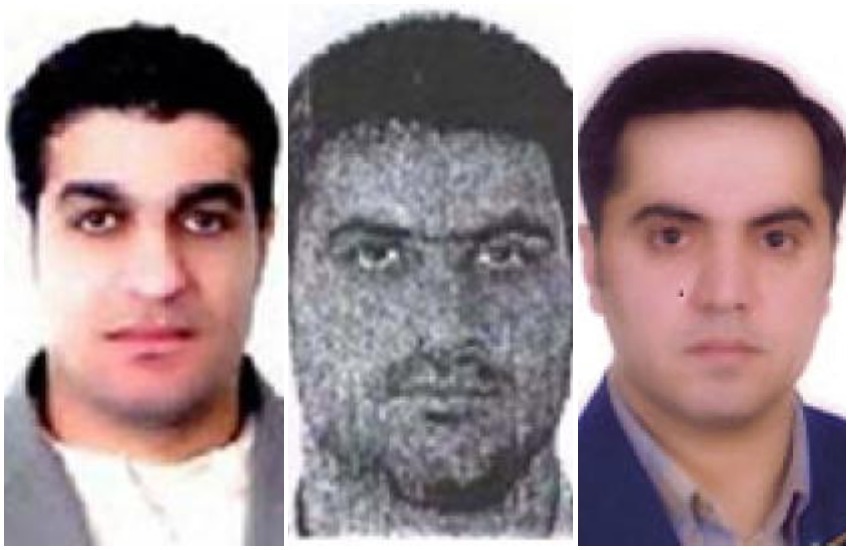BEIRUT: A UN-backed court found one Hezbollah member guilty on Tuesday of the 2005 assassination of former Lebanese prime minister Rafik Hariri, but acquitted three others of involvement in a truck-bomb attack that also claimed the lives of 21 other people.

From left to right: Assad Hassan Sabra, Hussein Hassan Oneissi and Hassan Habib Merhi were all aquitted. (STL)
The verdicts from the UN Special Tribunal for Lebanon in the Netherlands were delivered more than 15 years after Hariri was killed and 13 years after the court began its investigations.
The tribunal ruled that Salim Jamil Ayyash, 56, was “the main criminal in the Hariri assassination and a co-conspirator in a plot to commit a terrorist act.” The court said Ayyash “had organizational links with Hezbollah” and that Hezbollah and Syria had “benefited from the assassination.”
Opinion
This section contains relevant reference points, placed in (Opinion field)
Three other accused — Assad Hassan Sabra, 43, Hussein Hassan Oneissi, 46, and Hassan Habib Merhi, 54 — were acquitted of any involvement in the crime because of “insufficient evidence.”
However, the tribunal ruled that Hariri’s killing was politically motivated and an “act of terrorism designed to cause fear in the Lebanese population.”

Rafic Hariri had helped rebuild Lebanon after years of war. (Reuters/File)
Former Prime Minister Saad Hariri, the murdered man’s son, said his family accepted the tribunal’s verdict. “The time for political crimes that go unpunished is over. We will not rest until the punishment is implemented,” he said. “We will not relinquish our rights. The Lebanese want truth and justice.”
Special Tribunal Judge David Re, assisted by other judges, presented a summary of more than 3,000 papers detailing the court’s ruling. The verdict was broadcast on all channels in Lebanon, except Hezbollah’s outlet.
“The assassination of Hariri was a terrorist act, carried out with the intention of creating a state of panic. Its desired goal was to destabilize Lebanon in general and kill a large number of people,” the court said.
“Evidence indicates that the assassination of Hariri had political links, but it does not prove who ordered his assassination. This assassination was a political act directed by those who viewed Hariri as a threat to their activities.”

Saad Hariri arrives to address the media after the Lebanon tribunal in Leidschendam, Netherlands, delivered a verdict against those accused of killing his father. (AP)
The court found that “Hezbollah and Syria have benefited from the assassination of Hariri, but there is no evidence that the leaders of the party and Syria were responsible for the assassination.” Ayyash, who was tried in his absence, will be sentenced on Friday.
*********
READ MORE:
Saad Hariri says punishment must be served after Lebanon verdict on father's killing
45 Moments that changed the Middle East: The assassination of Hariri
Traumatized Lebanon awaits Rafic Hariri murder verdict
Lebanon Hariri tribunal judgement postponed after Beirut blast
*********
Saudi Arabia “views the ruling as the emergence of truth and the beginning of a process of achieving justice by chasing, arresting and punishing those involved,” the Foreign Ministry said.
“In calling for Hezbollah and its terrorist elements to face justice and be punished, Saudi Arabia stresses the need to protect Lebanon, the region and the world from the terrorist practices of this group,” it said.



















